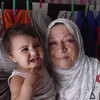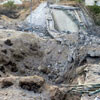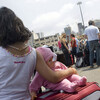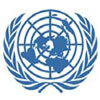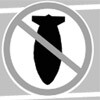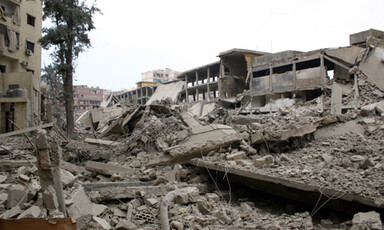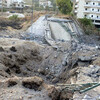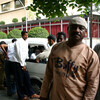
Asylum seekers stuck in Beirut
22 July 2006
Roughly 22,000 refugees and asylum seekers are stranded in Lebanon - mainly from Iraq, Sudan and Somalia - and UN refugee agency UNHCR is increasingly concerned for their safety. “There has been a demonstration outside our office in Beirut by some of these frightened people, including stranded migrant workers, asking us to put them on a boat to Cyprus to safety,” said Ekber Menemencioglu, UNHCR’s director for the region. “We are helping with their immediate needs by directing and taking them to shelters, where they can get a roof over their heads and food packages,” he added. Read more about Asylum seekers stuck in Beirut

